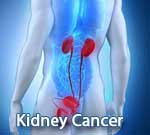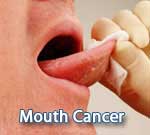Introduction Of Colon Cancer
Introduction
This page is about cancer of the colon and rectum. Cancer that begins in the colon is called colon cancer, and cancer that begins in the rectum is called rectal cancer. Cancer that starts in either of these organs may also be called colorectal cancer.
In the United States, colorectal cancer is the fourth most common cancer in men, after skin, prostate, and lung cancer. It is also the fourth most common cancer in women, after skin, breast, and lung cancer.
You will read about possible risk factors, screening, symptoms, diagnosis, and treatment. You will also find lists of questions to ask your doctor. It may help to take this booklet with you to your next
Video - Colon / Colorectal Cancer Surgery In India
The Colon and Rectum
The colon and rectum are parts of the digestive system. They form a long, muscular tube called the large intestine (also called the large bowel). The colon is the first 4 to 5 feet of the large intestine, and the rectum is the last several inches. Partly digested food enters the colon from the small intestine. The colon removes water and nutrients from the food and turns the rest into waste (stool). The waste passes from the colon into the rectum and then out of the body through the anus.
 This picture shows the colon and rectum.
This picture shows the colon and rectum.
Understanding Cancer
Cancer begins in cells, the building blocks that make up tissues. Tissues make up the organs of the body.
Normally, cells grow and divide to form new cells as the body needs them. When cells grow old, they die, and new cells take their place.
Sometimes, this orderly process goes wrong. New cells form when the body does not need them, and old cells do not die when they should. These extra cells can form a mass of tissue called a growth or tumor.
Tumors can be benign or malignant:
- Benign tumors are not cancer:
- Benign tumors are rarely life-threatening.
- Most benign tumors can be removed. They usually do not grow back.
- Benign tumors do not invade the tissues around them.
- Cells from benign tumors do not spread to other parts of the body.
- Malignant tumors are cancer:
- Malignant tumors are generally more serious than benign tumors. They may be life- threatening.
- Malignant tumors often can be removed. But sometimes they grow back.
- Malignant tumors can invade and damage nearby tissues and organs.
- Cancer cells can break away from a malignant tumor and spread to other parts of the body. Cancer cells spread by entering the bloodstream or the lymphatic system. The cancer cells form new tumors that damage other organs. The spread of cancer is called metastasis.
When colorectal cancer spreads outside the colon or rectum, cancer cells are often found in nearby lymph nodes. If cancer cells have reached these nodes, they may also have spread to other lymph nodes or other organs. Colorectal cancer cells most often spread to the liver.
When cancer spreads from its original place to another part of the body, the new tumor has the same kind of abnormal cells and the same name as the original tumor. For example, if colorectal cancer spreads to the liver, the cancer cells in the liver are actually colorectal cancer cells. The disease is metastatic colorectal cancer, not liver cancer. For that reason, it is treated as colorectal cancer, not liver cancer. Doctors call the new tumor "distant" or metastatic disease.
Risk Factors
No one knows the exact causes of colorectal cancer. Doctors often cannot explain why one person develops this disease and another does not. However, it is clear that colorectal cancer is not contagious. No one can catch this disease from another person.
Research has shown that people with certain risk factors are more likely than others to develop colorectal cancer. A risk factor is something that may increase the chance of developing a disease.
Studies have found the following risk factors for colorectal cancer:
- Age over 50: Colorectal cancer is more likely to occur, as people get older. More than 90 percent of people with this disease are diagnosed after age 50. The average age at diagnosis is 72.
- Colorectal polyps: Polyps are growths on the inner wall of the colon or rectum. They are common in people over age 50. Most polyps are benign (not cancer), but some polyps (adenomas) can become cancer. Finding and removing polyps may reduce the risk of colorectal cancer.
- Family history of colorectal cancer: Close relatives (parents, brothers, sisters, or children) of a person with a history of colorectal cancer are somewhat more likely to develop this disease themselves, especially if the relative had the cancer at a young age. If many close relatives have a history of colorectal cancer, the risk is even greater.
- Genetic alterations: Changes in certain genes increase the risk of colorectal cancer.
- Hereditary nonpolyposis colon cancer (HNPCC) is the most common type of inherited (genetic) colorectal cancer. It accounts for about 2 percent of all colorectal cancer cases. It is caused by changes in an HNPCC gene. Most people with an altered HNPCC gene develop colon cancer, and the average age at diagnosis of colon cancer is 44.
- Familial adenomatous polyposis (FAP) is a rare, inherited condition in which hundreds of polyps form in the colon and rectum. It is caused by a change in a specific gene called APC. Unless FAP is treated, it usually leads to colorectal cancer by age 40. FAP accounts for less than 1 percent of all colorectal cancer cases.
Family members of people who have HNPCC or FAP can have genetic testing to check for specific genetic changes. For those who have changes in their genes, health care providers may suggest ways to try to reduce the risk of colorectal cancer, or to improve the detection of this disease. For adults with FAP, the doctor may recommend an operation to remove all or part of the colon and rectum.
- Personal history of cancer: A person who has already had colorectal cancer may develop colorectal cancer a second time. Also, women with a history of cancer of the ovary, uterus (endometrium), or breast are at a somewhat higher risk of developing colorectal cancer.
- Ulcerative colitis or Crohn's disease: A person who has had a condition that causes inflammation of the colon (such as ulcerative colitis or Crohn's disease) for many years is at increased risk of developing colorectal cancer.
- Diet: Studies suggest that diets high in fat (especially animal fat) and low in calcium, folate, and fiber may increase the risk of colorectal cancer. Also, some studies suggest that people who eat a diet very low in fruits and vegetables may have a higher risk of colorectal cancer. However, results from diet studies do not always agree, and more research is needed to better understand how diet affects the risk of colorectal cancer.
- Cigarette smoking: A person who smokes cigarettes may be at increased risk of developing polyps and colorectal cancer.
Because people who have colorectal cancer may develop colorectal cancer a second time, it is important to have checkups. If you have colorectal cancer, you also may be concerned that your family members may develop the disease. People who think they may be at risk should talk to their doctor. The doctor may be able to suggest ways to reduce the risk and can plan an appropriate schedule for checkups. See the "Screening" section to learn more about tests that can find polyps or colorectal cancer.
Screening
Screening tests help your doctor find polyps or cancer before you have symptoms. Finding and removing polyps may prevent colorectal cancer. Also, treatment for colorectal cancer is more likely to be effective when the disease is found early.
To find polyps or early colorectal cancer:
- People in their 50s and older should be screened.
- People who are at higher-than-average risk of colorectal cancer should talk with their doctor about whether to have screening tests before age 50, what tests to have, the benefits and risks of each test, and how often to schedule appointments.
The following screening tests can be used to detect polyps, cancer, or other abnormal areas.
Your doctor can explain more about each test:
- Fecal occult blood test (FOBT): Sometimes cancers or polyps bleed, and the FOBT can detect tiny amounts of blood in the stool. If this test detects blood, other tests are needed to find the source of the blood. Benign conditions (such as hemorrhoids) also can cause blood in the stool.
- Sigmoidoscopy: Your doctor checks inside your rectum and the lower part of the colon with a lighted tube called a sigmoidoscope. If polyps are found, the doctor removes them. The procedure to remove polyps is called a polypectomy.
- Colonoscopy: Your doctor examines inside the rectum and entire colon using a long, lighted tube called a colonoscope. Your doctor removes polyps that may be found.
- Double-contrast barium enema: You are given an enema with a barium solution, and air is pumped into your rectum. Several x-ray pictures are taken of your colon and rectum. The barium and air help your colon and rectum show up on the pictures. Polyps or tumors may show up.
- Digital rectal exam: A rectal exam is often part of a routine physical examination. Your doctor inserts a lubricated, gloved finger into your rectum to feel for abnormal areas.
- Virtual colonoscopy: This method is under study. See "The Promise of Cancer Research."
You may want to ask your doctor the following questions about screening:
- Which tests do you recommend for me? Why?
- How much do the tests cost? Will my health insurance plan help pay for screening tests?
- Are the tests painful?
- How soon after the tests will I learn the results?
Symptoms
A common symptom of colorectal cancer is a change in bowel habits. Symptoms include:
- Having diarrhea or constipation
- Feeling that your bowel does not empty completely
- Finding blood (either bright red or very dark) in your stool
- Finding your stools are narrower than usual
- Frequently having gas pains or cramps, or feeling full or bloated
- Losing weight with no known reason
- Feeling very tired all the time
- Having nausea or vomiting
Most often, these symptoms are not due to cancer. Other health problems can cause the same symptoms. Anyone with these symptoms should see a doctor to be diagnosed and treated as early as possible.





































